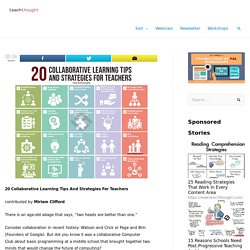

What can humans learn from whale culture? - BBC Ideas. The surprising benefits of “uitwaaien”—the Dutch practice of spending time in the wind. Recently I was in San Francisco, a city known for its tech companies, steep hills, and fierce winds.

Each day I’d run around the neighborhood and up through the park, ending with a spectacular view of the Golden Gate Bridge. Back in my AirBnB, I’d feel energized and refreshed, fingers tingling from the breeze. It was cold, exhausting, but completely exhilarating. As it turns out, there’s a unique term, from the Dutch, for this sort of pastime. In the Netherlands, people have been seeking out windy exercise for more than a hundred years. So open that calendar app and note some time for uitwaaien. A growing body of evidence suggests that Dutch speakers may be onto something. Other researchers have found similar results, linking activities like nature walks with reduced levels of depression, perceived stress, and negative emotions. Why The Art of Speaking Should Be Taught Alongside Math and Literacy. Classrooms in the U.S. often focus most attention on literacy and math, largely because those skills are considered foundational and are tested.
However most people will also need to communicate their thoughts and ideas to other people through oral language, and yet effective communication strategies are often not taught with the same precision and structure as other parts of the curriculum. School 21, a public school in London has made "oracy" a primary focus of everything they do. From the earliest grades on up teachers support students to find their voice, express differing opinions politely, and challenge one another's thinking. These are skills called for in the Common Core, but can be hard to find in many classrooms because students haven't been taught how to make "turn and talks" truly effective.
The Edutopia team visited School 21 and captured some amazing videos of students practicing their communication skills with support from teachers. ATL skills in future. 4 tips to help you achieve your goals. Wide Open School. A-level Psychology Aggression Revision for PSYA3. Section 1: Neural and Hormonal causes of aggression. • The Limbic System (including the Hypothalamus and Amygdala) tends to act as an alarm system triggering aggressive response to certain types of threats.

. • Giving testosterone to new-born female mice made them act like males with increased aggression, when given testosterone as adults. However, control females only given testosterone as adults did not react in this way (Edwards ,1968).This suggests that testosterone masculinises androgen-sensitive neural circuits underlying aggression in the brain. Developing Students' Ability to Give and Take Effective Feedback. Training kids to give effective critique is one of those teaching strategies that takes some time on the front end, but can save a lot of time once students get good at it. It’s common for students to give unhelpful, general or unkind feedback that doesn’t do much to advance a peer’s goals for the work, but Lukas found when she carefully trained students on some conversational “commandments” and attitudes around peer critique, 12-year-olds could give feedback as well as any adult.
Even better, when kids got feedback from peers, she found they internalized it more. But incorporating peer critique into the classroom does take time, which is most effectively spent on bigger, meatier projects that students are invested in improving. Lukas advises teachers she works with to use the adapted Six Hat feedback strategy only on assignments that require students to do several drafts, so they have time to incorporate the feedback they received.
AASSA- Association of American Schools in South America. By Dr.

Samiramis Sarkardei, teacher of IB Biology at PASB International School in Salvador, Brazil. That familiar phrase from one of my favorite stories plays in my head over and over again since virtual learning began at my school. How to Write Good Interview Questions for Your Story. The interview questions you ask your interviewee can make or break your magazine article.

While you might be able to wing a few good questions on the spot, you're guaranteed to miss out on some key aspects of the story if you don't come prepared to probe. Here are eight things to keep in mind as you write and ask your interview questions. Prepare Ahead of Time Never go in cold. You have to do your research and be fully prepared in advance, so you know your subject well enough to raise the right questions.
Set the Tone Simply put, funny questions result in light-hearted, humorous interviews and inspiring questions result in inspiring interviews. 20 Collaborative Learning Tips And Strategies For Teachers. 20 Collaborative Learning Tips And Strategies For Teachers contributed by Miriam Clifford There is an age old adage that says, “two heads are better than one.”

Consider collaboration in recent history: Watson and Crick or Page and Brin (Founders of Google). But did you know it was a collaborative Computer Club about basic programming at a middle school that brought together two minds that would change the future of computing? Why ‘worthless’ humanities degrees may set you up for life - BBC Worklife. 3 Important Life Skills Nobody Ever Taught You. Imagine for a second that I’m your father.
Radical Candor — The Surprising Secret to Being a Good Boss. Kim Scott, co-founder of Candor, Inc., has built her career around a simple goal: Creating bullshit-free zones where people love their work and working together. She first tried it at her own software startup. Then, as a long-time director at Google, she studied how the company’s leaders created an environment where the joy that people took in their work felt almost tangible. As a faculty member at Apple University, Scott learned how Apple takes a different path but is equally committed to creating the conditions where people can do the best work of their careers and love doing it. Along the way, she managed a lot of teams in various states of euphoria and panic.
Emotional Intelligence: The Social Skills You Weren't Taught in School. Why Talented People Don’t Use Their Strengths. Executive Summary Experts have long encouraged people to “play to their strengths.”

But based on my observations, this is easier said than done, because we often undervalue what we inherently do well. As a leader, the challenge is not only to spot talent but also to convince your people that you value their talents and that they should, too. Begin by identifying the strengths of each member of your team. 7 Effective Time Management Tips To Maximize Your Productivity. We live in a world of massive distraction.

No matter where you are today, there is always going to be distractions. Your colleagues talking about their latest date, notification messages popping up on your screens, and not just your mobile phone screens. And even if you try to find a quiet place, there will always be someone with a mobile device that is beeping and chirping. How to Deal with Difficult People. The Power of Listening - An Ancient Practice for Our Future: Leon Berg at TEDxRedondoBeach. Want to become a better leader? Here's how. Just listen...: Catherine Rymsha at TEDxLowell. The sound of happiness: Julian Treasure at TEDxCannes.
Conscious Listening. Amazon. Roger Love, the #1 Vocal Coach, Can Help You Speak More Confidently & Effectively. 6 Brilliant TED Talks to Improve Your Speaking Voice - Time to Shine Podcast. A Case for Active Listening: Jason Chare at TEDxTokyoTeachers. Ernesto Sirolli: Want to help someone? Shut up and listen! Youtube. How to Win Friends and Influence People by Dale Carnegie.